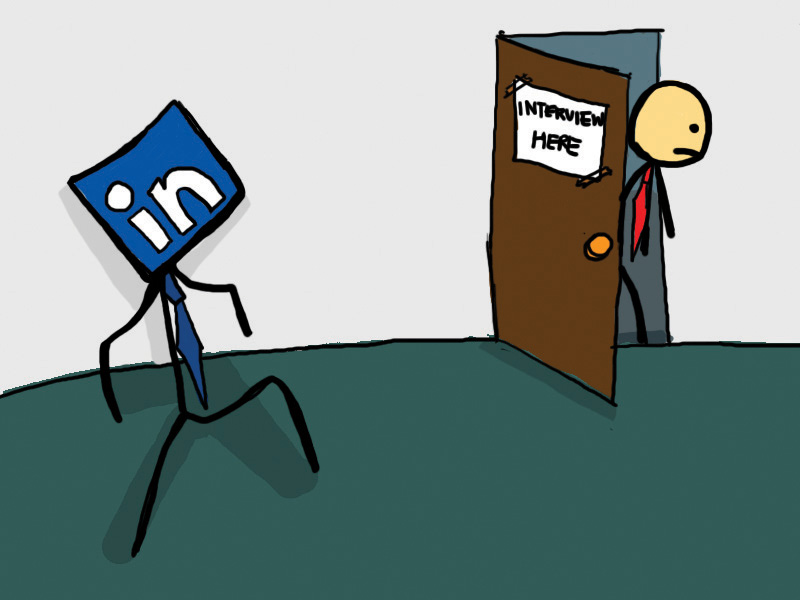
Aurash Jailalian
Illustration by Silvia Quach, Staff Illustrator
LinkedIn, for better or for worse, has changed the job application process forever. Finding a job used to be an ambiguous and grueling task, but now, with the use of LinkedIn and other career building websites, you can complete the process in the comfort of your own home. One major complaint about the website, however, is that it obscures the importance of good character, placing too much emphasis on having the best résumé. In layman’s terms, it reduces applicants to numbers.
While in some ways this is a legitimate complaint, it falls flat in others. The supposed downfalls of LinkedIn are easily resolved through the applicant’s diligence. An extraordinary applicant will always find a way to shine through the rest of the pack. Whether it is by juggling three jobs or starting a non-profit, an incredible applicant will always find their way into whatever interview they want.
Accolades do not materialize out of thin air; they take hours of hard-work to accomplish (which definitely says something about the character of an applicant). And although résumés may seem like nothing more than numbers, they actually tell a compelling story about the life of the applicant. Say, for instance, you want to be a pediatrician: you could utilize the interests, background, and resume sections of LinkedIn in order to convey your genuine love for working with children to your employers.
Furthermore, the background section of LinkedIn allows an applicant to add some flair to a résumé and showcase why the applicant is special. In this sense, LinkedIn actually accentuates the character of the applicant and allows for them to further their career on the basis of character, contrary to what critics might suggest.
It is easy to forget employers have always had the final say when it comes to who gets a job. Neither LinkedIn, nor any other job-related site, has ever dictated what employers look for in prospective candidates. Employers will always personally interview students no matter how prevalent LinkedIn becomes, because no one can truly be evaluated just by their résumé.
While LinkedIn does not do a good job of controlling what employers are looking for, it does play a big part in equalizing the playing field for all applicants. Everyone is born in a different place in life. While some people start off with a compendium of connections, others are forced to network tirelessly to find the right connections to just barely land a sub-par internship. This is where LinkedIn shines brightest: it instantly brings you closer to millions of professionals and helps you get your foot in the door.
Before LinkedIn, applying for a job would be a full-time job in and of itself, as one would be forced to call and e-mail as many professionals as possible just to land an interview. But now, you can upload your résumé and qualifications for hundreds to see from the comfort of your home. This innovation helps busy applicants who are looking for new jobs, and working students who do not have time to contact dozens of potential employers.
The website has also revolutionized the job application process by bringing transparency to the historically ambiguous process. Previously, polished résumés only changed hands between employers and their respective owners, so it was hard for new applicants to comprehend what constitutes a great resume. But now, one has access to hundreds of refined resumes as well as thousands of job-related articles with just a few clicks of the mouse. Sure, you could take a seminar at your university or maybe even a whole class at your local community college, but before LinkedIn, it was never the case for applicants to be exposed to this kind of information. This transparency, while almost unhelpful to students who can afford to dish-out cash to pay for professional services, substantially benefits the underprivileged applicant (namely college students) who cannot afford to buy their way into a crisp résumé.
At the end of the day, LinkedIn is whatever you make of it. If you want your résumé to define you and all of your experiences, then yes, LinkedIn will reduce you to nothing more than just a statistic. But if you want to show employers that you are a confident and capable employee, then LinkedIn will add an array of weapons to your arsenal.










